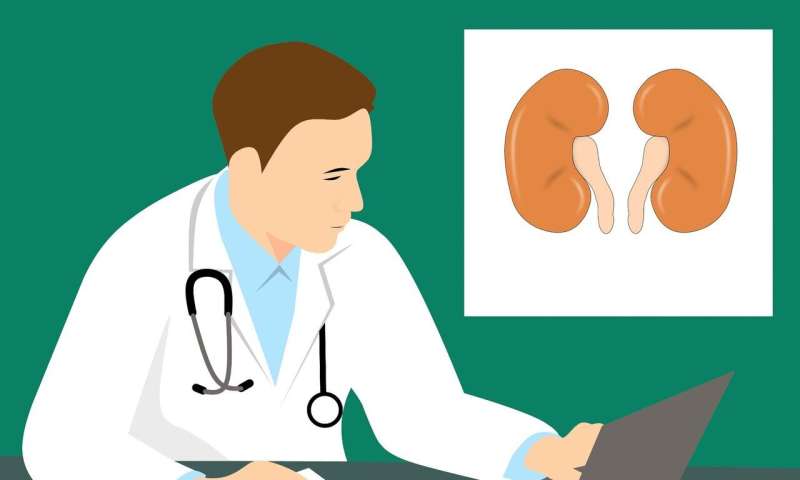Credit: CC0 Public Domain
Results from a new study indicate that many patients with kidney failure regret initiating dialysis, and those who choose dialysis to please their doctors or family members may be more likely to experience regret. The findings appear in an upcoming issue of CJASN.
Sometimes patients experience regret when they reflect on a decision they've made about their medical care, and this can negatively affect their quality of life. For patients with kidney failure who cannot receive a transplant and are contemplating dialysis, it's important to have discussions with kidney specialists and other experts who can explain the impacts that dialysis may have on their lives.
Because few studies have examined regret in patients after they've started dialysis as a treatment for kidney failure, a team led by Fahad Saeed, MD (University of Rochester Medical Center) and Paul R. Duberstein, Ph.D. (Rutgers School of Public Health) analyzed survey responses related to regret in patients receiving maintenance dialysis from 7 dialysis units in the Cleveland, Ohio area.
Eighty-two of 397 respondents (21%) reported regret that they decided to initiate dialysis. There were no significant demographic factors linked with regret. Regret was more common when patients reported choosing dialysis to please doctors or family members. Patients who reported discussing life expectancy with their doctors and those who had completed a living will were less likely to report regret that they started dialysis.
"Three strategies to mitigate regret in patients with kidney failure are: the public should be educated about alternatives to dialysis, such as conservative management or active medical management without dialysis; nephrologists should give patients and family members detailed information about life expectancy and quality of life with and without dialysis to help patients and family members decide whether to start dialysis; and patients should talk with their doctors about their life expectancy and complete a living will," said Dr. Saeed.
More information: "Dialysis Regret: Prevalence and Correlates," CJASN, DOI: 10.2215/CJN.13781119
Provided by American Society of Nephrology






















